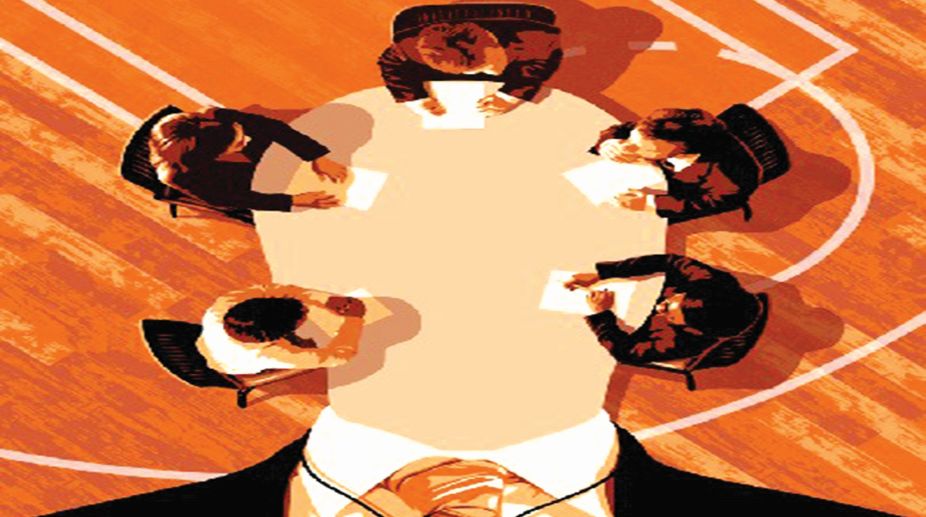Nepal Policy
India’s relationship with Nepal has always been complex, shaped by historical, cultural, and geographical factors.

So many things are happening so fast in Nepal’s foreign policy realm. Soon after Prime Minister K P Oli assumed office, Pakistani Prime Minister Shahid Khaqan Abbasi paid an unusual visit to Nepal.
Breaking all diplomatic norms, Indian External Affairs Minister Sushma Swaraj met Oli before he was even sworn in. And immediately after the foreign minister was named, Kathmandu was abuzz with speculation whether Chinese President Xi Jinping or Indian Prime Minster Narendra Modi would visit Nepal first.
Advertisement
Even before the flutter following the announcement that Oli’s first foreign visit would be to New Delhi had died down, the report of the European Union Election Observation Mission set off a storm of venomous condemnations from the establishment for recommending that the constitutional provision for reservation for Khas-Aryas be changed.
Advertisement
Oli even called the heads of foreign missions and lectured them on nationalism and reminded them of their mandate and limitations. Many more such foreign policy issues are going to come up in the near future. Although the Foreign Ministry seems to be managing things at the moment, a coherent and strong foreign policy is unimaginable in the absence of robust foreign policy institutions.
The Public Service Commission (PSC) is an independent constitutional agency in charge of recruiting staff for all government offices including the Foreign Service. The PSC’s various examinations and screening processes are an efficient and fair mechanism for ensuring that capable candidates are selected for various positions in the Foreign Ministry.
However, reports of officials not being fully ready with their homework at international forums have emerged. Also, if the Foreign Ministry wants to pursue a proactive and vigorous foreign policy, it will need a larger staff than the 250 officers it has currently.
Although the PSC’s competitive selection procedure ensures that the selected officers meet the basic criteria, skill and knowledge required for the Foreign Service, new recruits certainly require specific training.
Today’s foreign policy issues are so dynamic and vibrant that keeping pace with the ever changing landscape is quite difficult. Thus, region specific knowledge is required. At the same time, international issues such as human rights, climate change, disarmament, terrorism and so forth have to be tackled with skill and prudence.
Officers need to possess argumentation, debating and negotiation skills. The Institute of Foreign Affairs of the Foreign Ministry conducts training, but the institute itself lacks adequate human and physical resources.
Foreign diplomats are invited to deliver talks and new staff are sent for training abroad. This is good, but having in-house training is important to understand the issues at home, devise policy and come up with organic plans.
A think tank is essential for policy making. Its various research wings formulate policy documents and interpret them for better clarity. Interpreting policy documents of other governments and think tanks, treaties and agreements and advising the government, and helping it to form guidelines and take an official line are some of the crucial roles played by a think tank.
The Institute of Foreign Affairs as a think tank is struggling as it doesn’t have enough funds, human resources and infrastructure. Specialised researchers and experts from various fields should find a place in this think tank. It is high time the Foreign Ministry equipped the Institute of Foreign Affairs to strengthen capabilities.
Nepal still has a practice of appointing ambassadors based on a party’s political inclination while many countries select career diplomats. Since they are affiliated with certain political parties, they may be biased, have a conflict of interest and may work with their own interest rather than the country’s best interest in mind.
Career diplomats come through a competitive process and are part of the permanent pool of officers. They are least inclined to be partial or biased, and can work without a conflict of interest as they do not belong to any political dispensation.
They are more likely to be result-oriented for they are focused on their careers. Therefore, Nepal should select career diplomats as ambassadors instead of political appointees.
Information and communication technology (ICT) is, of course, the modern means of communication. It allows a large volume of information to be disseminated in little time, making it possible to get a quick response.
However, when its safety is compromised, it is an issue of national security as there may be classified data.
Therefore, it is vital that the Foreign Ministry have its own ICT and cyber policy that ensures there’s no data breach and national security is not compromised. So a team of ICT professionals need to be kept at the ministry to operate and safeguard communication system.
Looking at the posture the incumbent political dispensation has shown in its early days, it is evident that it is preparing for a change in the way it conducts foreign policy. There is willingness in its leadership to take international affairs with new vigour and explore new dimensions.
But for effective and output driven foreign relations, the Foreign Ministry needs to have well established and functioning foreign policy institutions which will strengthen its capacity to deliver. In the absence of robust institutions, it can only produce news bites for domestic consumption, and it cannot expect any substantial results.
The Kathmandu Post/ANN
Advertisement